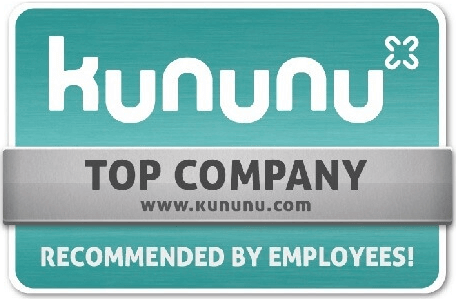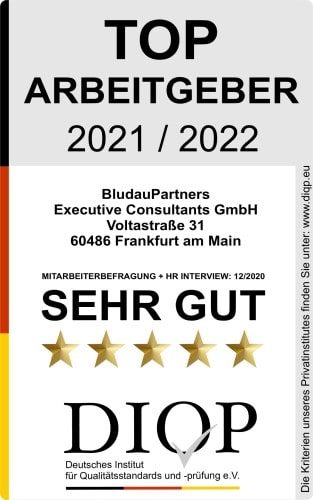TEN LEADERSHIP COMPETENCIES FOR TURBULENT TIMES
"Crises sometimes have the habit of accelerating latent changes that were already visible before but did not fully express themselves. They 'beam' us into a new world that we have basically long expected and dreamed of. For small companies and large corporations alike, it is now a matter of learning from the crisis with foresight and setting the course for the future".
– Harry Gatterer [1]
The corona crisis poses new challenges for almost all areas of life. But what do these changes mean for leadership competencies, what does remote management teach and what could leadership models of the future look like? The crisis has clearly shown one thing: functional cooperation, interaction in teams and agile leadership are no longer tied to a fixed location. Instead, newly structured ways of working and normative qualities correspond to the spirit of the times. But how can we succeed in establishing future-oriented leadership concepts and structures in a time when adaptation to an increasingly dynamic world is inevitable?
HOW DOES THE CORONA CRISIS CHANGE LEADERSHIP CONCEPTS?
The acronym "VUKA" stands for the change in the general conditions towards "volatility, uncertainty, complexity and ambiguity", which require "vision, prudence and understanding, clarity for the next step and agility". Dynamics and disruption are currently becoming clearer than they have been for a long time - as are the consequences of years of shyness about change and transformation. The fact that tried and tested concepts must be questioned and adapted, that signals of change must be perceived before they lead to strong pressure to change, should no longer surprise anyone, at the latest now. The Corona crisis reveals the opportunities to learn the skills needed to cope with this reorganisation.
As the Zukunftsinstitut points out in its study "The World after Corona", this has a number of consequences for action at the management level. Even in the pre-Corona era, there were developments from long-term thinking, rationality and stability to more agility and elasticity. Today, it can be seen that companies that are more resilient and agile tend to come through such changes and crises better. With the help of a broader understanding, acceptance of this complexity and strengthening through irritation instead of quality through error prevention, it will be possible to successfully ensure dynamic leadership in the future. For this it is essential to develop new planning instruments and reaction patterns, to adapt standards and to question the way decisions are made.

“PLANS ARE WORTHLESS, BUT PLANNING IS EVERYTHING“ (DWIGHT D. EISENHOWER)
One thing should be clear to everyone: The crisis requires companies or entire industries to question their business models and, if necessary, realign them. It is necessary to look ahead and learn what is central for the future: How can the unplannable be planned? It is up to managers to develop strategies that will continue to provide security and continuity in a constantly changing environment. To achieve this, reflection is required.
The traditional management model, which follows planning and control, where few managers know the right answers, must be rethought. It is time to ask questions, question processes and structures and involve many. In this way, core competencies can be preserved and expanded, while agility and complexity are not ignored.
TEN LEADERSHIP COMPETENCIES OF THE FUTURE

The following ten leadership competencies of the future can be derived from the previous statements.
- Change Competence
Mobilize your employees to do things differently, faster and more efficiently. - Managing intelligent innovations
Those who work in a progressive and innovative manner must also allow mistakes to be made. However, you should learn quickly from these mistakes and always adapt and reflect in order to offer room for good ideas. - Implementation Excellence
Visions are strong when they increase the benefit for (internal/external) customers. Implement ideas cleverly so that the benefit for customers can be maximized. - Analytical prowess
Especially in times of change, the power of analytics and structures is revealed. To analyze and understand processes helps you and your employees. - Networking & relationship management
Although there will always be structural changes, you will optimize your networks, as well as teamwork and exchange among each other. A good working atmosphere is essential for entrepreneurial success in the future as well.
- Strengths of commitment
Encourage employees to recognize their strengths and bring in new ideas. In this way new energies can be released in the team. - Authenticity
Despite massive changes: Stay true to yourself. You know what your brand stands for and know your employees and customers. Do not lose focus on the essentials! - Empathy
New structures and forms of remote management require new management approaches. These circumstances are a change for everyone; for this reason new perspectives and understanding for employees and customers are needed. New forms of performance management require the evaluation of team goals as well as individual structures. If you give your employees the feeling of understanding them and trusting them, you increase your company's chances of success. - Promoting discourse and transparency
Procedures and decision-making processes may be questioned. Reflection and openness enable involvement and promote understanding - thus creating security. - Clear communication
"Communication is key": Those who justify their decisions, communicate processes transparently and sincerely and thus address all target groups, increase their chances of managing a company successfully to a decisive degree.

The threshold to the digital workplace was crossed by the Corona crisis at the latest - Remote Work will be the model of the future. The resulting lack of physical proximity to employees must be compensated for by normative values such as trust and adaptation to needs. Newly emerging areas of conflict must be identified and addressed, performance management methods established and teams trained in various areas.
Clear communication, the courage to change and a transparent feedback culture help to strengthen the position of managers and adapt to the new team dynamics, because neither laissez-faire nor micromanagement lead to the success of the company.











